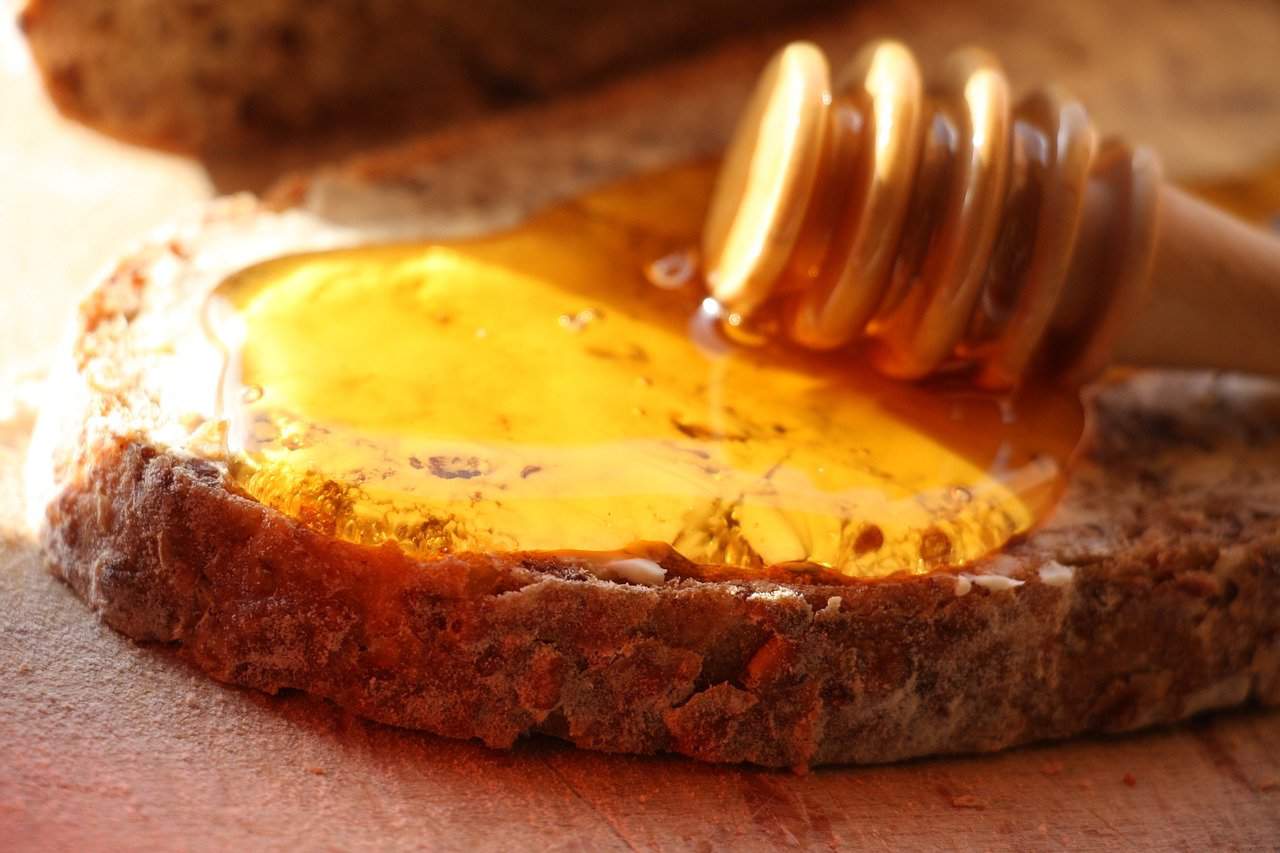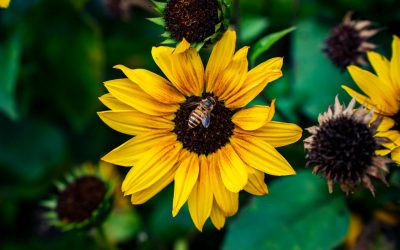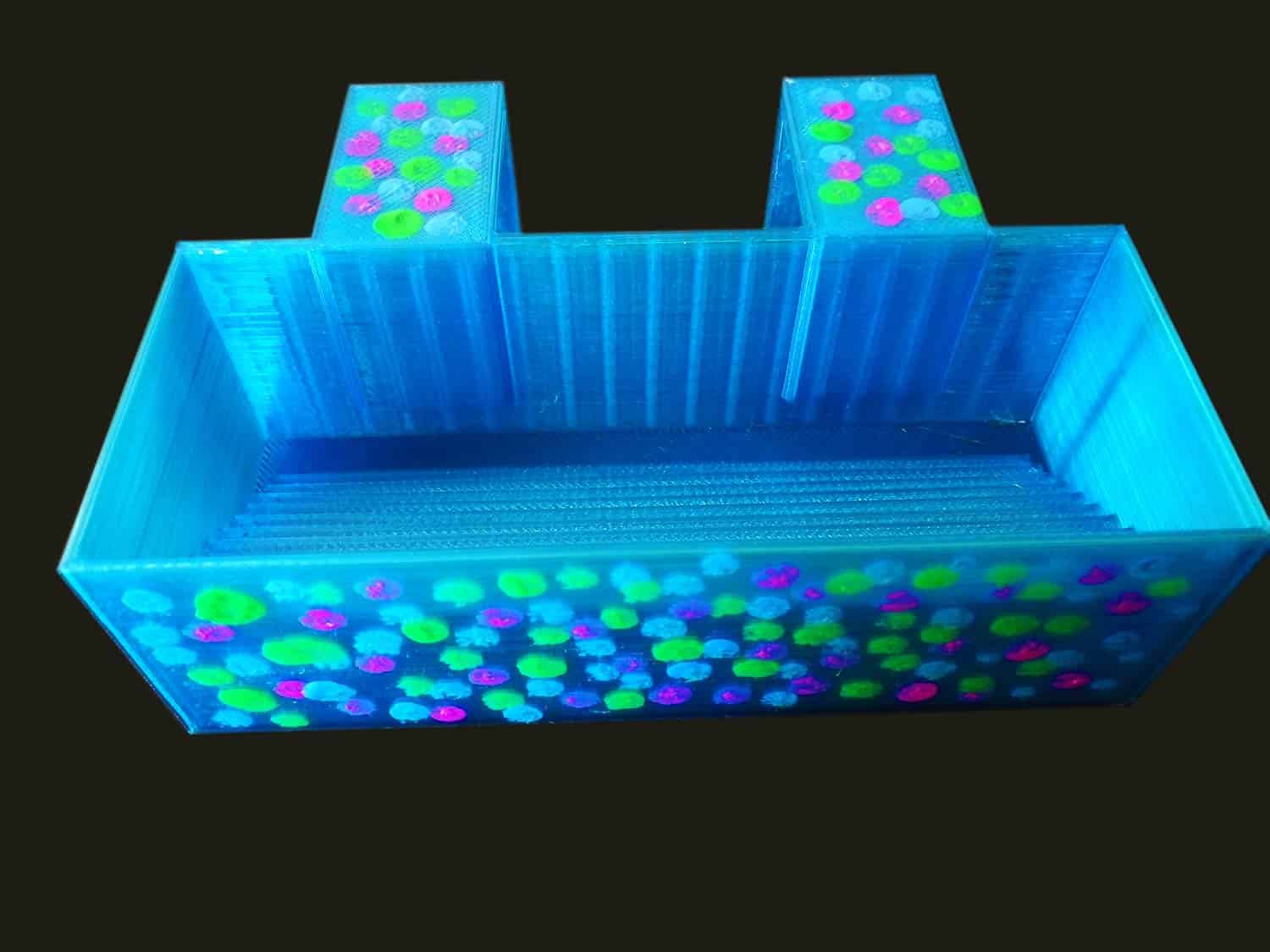Where to buy sustainable honey
An ethical guide for buying honey

What should you consider when buying honey?
Valued for centuries as a natural sweetener and for it’s health benefits, the worldwide honey demand keeps growing.
Meanwhile we witness increasingly intensive bee-farming methods accompanied by the extensive use of insecticides (especially neonicotinoids) within the commercial agriculture. Together with the loss of natural habitat these factors form a deadly series of reasons for the decimation of bee populations.
Science suggests that 15% to 35% of honey bee colonies have been lost between 1985 and 2005 in Europe. In the US, this figure may even reach 60-90%.
As a consequence, we as consumers should ask the following questions:
How can we make an ethically correct choice when buying honey?
And also, where can we buy sustainable honey?
There are three simple steps that everybody can take when choosing and buying sustainable honey:
1) Check if you really need honey
This might be a surprise, but we want you to think twice if you buy honey. Did you know?
Bees have visit 2 millions of flowers to produce half a kg of honey. It takes incredible efforts to produce the liquid gold. Don’t take it for granted.
So first, ask yourself, what do I need honey for?
Do you use honey as a sweetener for tea and coffee?
Then you might want to look into other alternatives. Not only will you kill all the beneficial properties when putting honey into hot beverages, but why using honey when there are cheaper alternatives? You can use stevia, agava syrup or other natural sugars.
Do you use honey to replace sugar in cakes?
You imagine what is coming. Big no no! If honey is heated to more than 37° C, it will lose most of its beneficial properties. It simply turns into fructose and glucose. In this case? Just use fructose or glucose, instead of honey.
We use bananas to sweeten cakes, but you could also try brown, untreated sugar or molasses.
As a result, honey shouldn’t be treated or processed. You are better off consuming honey raw and enjoy the beneficial properties. Read more about those properties in our article Health benefits of honey.
Balance is key: Conscious and moderate consumption is essential, looking at honey as a special-occasion product or health remedy and using plant-based sweeteners as alternatives.
2) Buy from your beekeeper nearby
If you decide to buy honey, make sure to purchase from beekeepers who love their bees.
Go and visit a local beekeeper in person and ask them about their work. Find out how many hives they have. If the person has thousands of hives, the chance of a harmonious relationship with their bees is very low.
Ask why they became beekeepers. Check if their eyes start glowing 🙂 or if they did it simply because they see it as a business.
To help maintaining a friendly ecosystem for the bees to thrive, it is worth investing in high quality honey which ideally comes from a small beekeeper nearby.
For some countries, it does make sense to buy an organic-labelled product as well. Yet, the label “organic” does not always guarantee such quality.
Why?
Bees need to visit thousands of flowers to collect the amount of nectar needed for one single glass of honey. To do that they fly in a radius of up to 5 km.
For many beekeepers it is impossible to guarantee that only organically grown flowers have been involved in this process.
Think about it, do you know a place where people grow exclusively organic food within 5 km distance?
However, the demand for organic honey is high. In other words, the amount of demanded honey is higher than the single countries can produce.
This fact translates into the dynamic that certified organic honey often needs to be imported.
The result? High food miles, less quality control and, unless stated as “fair trade”, poor working conditions.
For this reason it is much better to support a local beekeeper, who maybe can’t afford the organic certification. He might also be the most honest, not stating a honey to be organic, while it is almost impossible to assure this.
Also, for the small beekeeper it is even more important to keep the bees safe from pesticides. The reason is that a loss of one hive is for him much more difficult to bear, than for a beekeeper with thousands of hives.
3) Be aware of “fake honey”!
By investing in a local honey, you do not only support your local beekeeper in sustaining his bee population. You are also less likely to get your hands on “fake honey” or, to be more precise, adulterated, impure or artificial honey. Those are the cruel opposites of raw, pure, sustainable honey.
Fake honey has been extended in most cases with various kinds of syrup such as corn, dextrose, sugar, molasses or other flavours and additives have been added to sell larger quantities for extremely low prices.
Researchers found that most of these artificially created honeys originally come from China. These products endanger the local honey productions by imposing dumping prices impossible for national suppliers to compete with.
Fake honey is typically present in supermarket and wholesaler shelves.
But wait, we are not saying that all the honey jars in supermarkets are fake honeys.
What we want to tell you is that you should always check the label and find out about the origin of the honey. Do not trust blindly the “organic”-labels but follow your natural sense of logic:
Ask yourself: How can honey be sustainable if it is a blend of UE and non-UE honeys?
Also, the thickness or density of the honey may already indicate if it is real or fake: As a rule of thumb, while pure honey is rather thick, fake honey, on the other side, will run when moved from one side to another in a container. Other properties of fake honey can be foam, a rough texture and / or clumps as well as a sour or no significant smell at all.
For more information read also our Consumer guide for bee products.
SOURCES:



